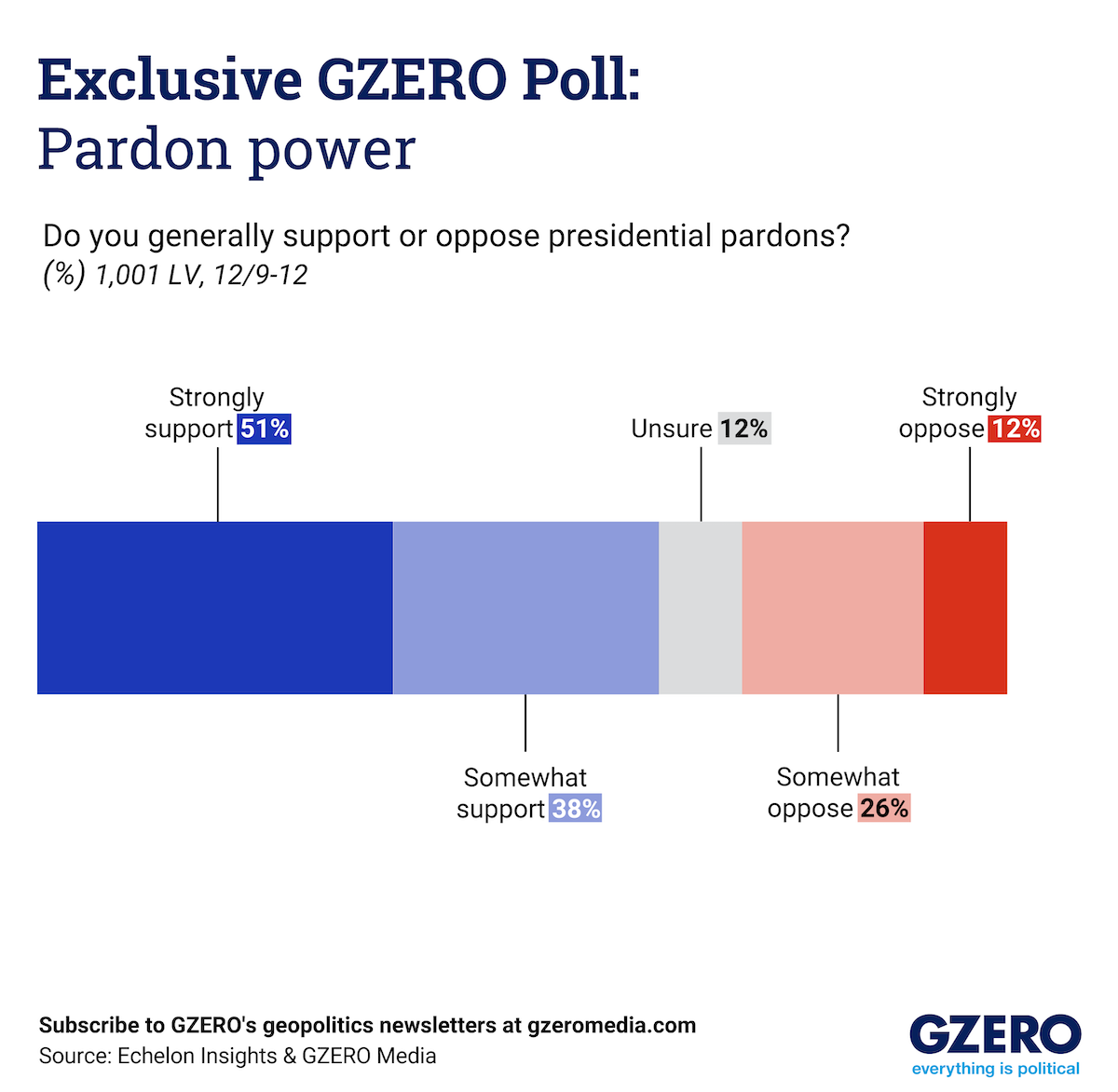December 22, 2024
Earlier this month, outgoing US President Joe Bidenissued the largest sweep of clemency in America’s modern history, reducing the prison sentences of some 1,500 people and vacating the convictions entirely for several dozen more. On the surface, it seems strange for a democracy to give its president the power of the pardon, a relic of the earliest English monarchies. So we teamed up with Echelon Insights to learn how ordinary Americans see the issue.
As it happens, 89% of respondents said they were in favor of pardon powers, with about half “strongly” supporting. Just 12%, meanwhile, said they strongly oppose. It seems that Americans broadly like the idea of the president holding the power to address miscarriages of justice. But when it comes to specifics, views are different. Biden’s controversial decision to pardon his sonHunter Bidenwas supported by just 2 in 10 Americans.
More For You
- YouTube
It's one of the few sources Americans across the political spectrum still rely on.
Most Popular
Think you know what's going on around the world? Here's your chance to prove it.
America’s new National Security Strategy confirms what Europeans have feared for months: Washington now sees a strong, unified European Union as a problem to be solved, not an ally to be supported.
Sports inspire greatness, determination, and resilience — both on and off the field. Bank of America is proud to celebrate the achievements of and uplift communities through the power of sports. Learn more about how Bank of America supports athletes in life and in the game.
© 2025 GZERO Media. All Rights Reserved | A Eurasia Group media company.
